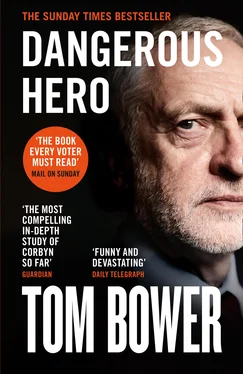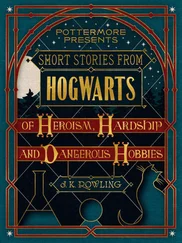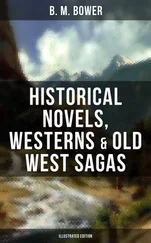In the summer of 1968 Corbyn was joined at Kingston College by Paul Wimpory, a physics graduate from Birmingham, also on a VSO contract, and the two became friends. By that time Corbyn had moved into a rented room in a house on Easton Avenue, a residential area in New Kingston, owned by the aunt of Dawn Tapper, one of the school’s English teachers. On the eve of her marriage, Tapper asked Corbyn to be the chief usher in the church. He agreed, only to forget his principal chore – he left all the wedding programmes in the house, and there was no time to return to collect them. As a result, the ceremony was confused, the minister omitted parts of the service, and the congregation did not say the responses. ‘He felt very bad about it,’ Tapper recalled.
Walter Rodney lived in an adjoining road to Corbyn. Wimpory believed that Corbyn, no longer under the direct supervision of the High Commission, was ‘rebelling against his affluent background’ and his links with traditional Britain. None of the VSO students who attended a drinks reception at the High Commission in early September recall seeing Corbyn. By then, about to start his second year of teaching, Corbyn frequently expressed to Wimpory his dismay about the ‘vast inequalities’ on the island, 137 years after slavery in Jamaica was abolished. He became convinced that the British Empire had not benefited Jamaicans, and that it had left behind a legacy of guilt for the gross exploitation of innocent, impoverished people.
On 15 October, Walter Rodney attempted to return to Jamaica via Canada. By then his trips to Cuba and Moscow, combined with reports of student revolts in Europe and guerrilla warfare financed by Moscow in Asia, Africa and Latin America, had aroused fear among pro-Western Jamaicans. In that mood, the government banned his entry. Three days later, the university campus in Kingston erupted. For two days, left-wing students rioted, burning buildings and cars in what became known as the Rodney Riots. The unrest was put down, but the government failed to recover its authority. Remarkably, none of the young Marxists recalls seeing Corbyn during the rioting, and neither Wimpory nor Chang ever discussed those tumultuous events with him. He has never mentioned witnessing the uprising, and has never since met the Marxist students who subsequently became prominent Jamaicans. Yet their influence on him would seem to have been profound. Within eight weeks of the riots, Corbyn decided he could no longer tolerate Kingston College. To his good fortune, the school had been underpaying him by £1 per week, so he received a lump sum of £52 (about £900 today), and planned in secret how to escape.
The first casualty of his leaving was one of the college’s pupils, Derrick Aarons, a fourteen-year-old weekend hiker and a participant in the Duke of Edinburgh Award. Aarons had completed all the requirements for the award’s Bronze Medal, and had been assured by Corbyn that the necessary forms had been sent to London, and that in January 1969 he would receive his medal from Jamaica’s governor general. The excited boy frequently asked Corbyn if he had received a reply yet from London. The answer was always no. In January Aarons returned from his holidays, and was told that Corbyn had decamped back to Britain. The medal never materialised. ‘I was,’ recalled Aarons, ‘a very disappointed teenager.’ Had Corbyn even submitted the forms? During a recent trip to London, Aarons, today a prominent Caribbean doctor, contacted Corbyn’s office to arrange a reunion. ‘I was convinced,’ he said, ‘that he would remember me as the keenest of his hikers, but I never received any acknowledgement.’
The more important casualties of Corbyn’s decision to quit early were the pupils in his four geography classes. No replacement could be found. ‘I always thought how curious to leave part of the way through the school year,’ observed Paul Wimpory. ‘It was not very professional.’ Corbyn left Jamaica, Dawn Tapper recalled, just days after her wedding on 14 December. ‘Jeremy told us that he was returning to Britain,’ she said. ‘I gave him a piece of my wedding cake to eat on his journey.’
Corbyn has always concealed what he did after leaving Kingston. ‘I spent my youth in Jamaica,’ he told Channel 4 News in 2015, but did not elaborate. According to his account, he left Jamaica in July 1969, having fulfilled his two-year contract. Not only is that untrue, but he has never honestly revealed what happened during the missing seven months. His description of the journey from Jamaica is vague: ‘I took a sailing boat around the Caribbean, and then a fishing boat to Guyana.’ The only local passenger ship leaving Kingston and going as far as Trinidad was a small island-hopping freighter. That left 430 miles along the coast to Georgetown, Guyana’s capital – hardly the route for a ‘fishing boat’.
Corbyn says that he ‘spent some time in Guyana’, a pertinent revelation. The former British colony was then Walter Rodney’s home. Until 1964, Cheddi Jagan, a Marxist, had been the country’s leader, but with the connivance of the British and the CIA he had been replaced by a pro-Western prime minister. Nevertheless, in 1968 the strong Cuban presence in Guyana, Castro’s base for guerrilla warfare in South America, remained undiminished, and with Rodney’s help Corbyn could have flown to Cuba via Mexico. He has never said when he first visited Cuba, and the extent of his Marxist education in Guyana remains unknown. Like so much of his account of his life until he left Guyana, it is partly romanticised, and possibly an invention.
According to Corbyn’s version, he travelled from Guyana to Brazil, and on to Uruguay, Argentina, Chile, Bolivia, Paraguay, Peru, back to Buenos Aires, and then sailed to France in 1970. He has said that during the year he spent travelling he had been impressed by the culture of South America’s indigenous tribes, the history of the European settlers’ revolts against the colonial powers, and the countries’ battles during the 1950s against rapacious American corporations and CIA subversion. The journey confirmed his socialist ideals. Here was a cause that suited his ‘loser’ personality – he would fight for the downtrodden against their oppressors.
More recently, Corbyn has claimed that he was influenced by Open Veins of Latin America , by the Uruguayan journalist, writer and poet Eduardo Galeano, a critique of the exploitation of the continent’s Indians by monarchs, the Catholic Church and multinational American corporations. That is doubtful. The book was first published in 1971, a year after Corbyn returned to Britain, and he could not read Spanish. Pertinently, shortly before his death in 2015 Galeano repudiated the book as a distortion of the continent’s economic history, and confessed that he was embarrassed by his youthful prejudice in favour of South America’s left-wing dictators. In his enthusiasm for the book, Corbyn ignored Galeano’s disclaimer. He was enchanted, he said, by the indigenous customs and languages of South American civilisations – Incas, Quechua and Aymara – all smothered by Spanish colonialism.
He would also claim to have been influenced by Walter Rodney’s How Europe Underdeveloped Africa , published in 1972, which described the Caribbean search for identity after the end of colonialism. Rodney’s and Galeano’s ideas, picked up after his year in Jamaica, thereafter became the foundation of Corbyn’s principles and way of looking at the world. He loathed imperialism – Spanish, American or British. He never sought to understand how Greek, Roman and successive European empires were the foundation of Western civilisation, but stuck resolutely to his belief in the unalleviated evil of white colonial oppression. In 2015 he demanded that the then prime minister David Cameron apologise to Jamaica for Britain’s ‘brutal’ involvement in the slave trade. ‘It’s a history of the most gross exploitation of people,’ he said. He would never condemn Russian, Chinese or Arab oppression in similar terms. Nor, as a self-proclaimed pacifist, could he explain how the victims of imperialism – either the local Indians in Latin America or Europeans as the prey of the French, Soviet and German empires – could have regained their liberty without fighting.
Читать дальше










